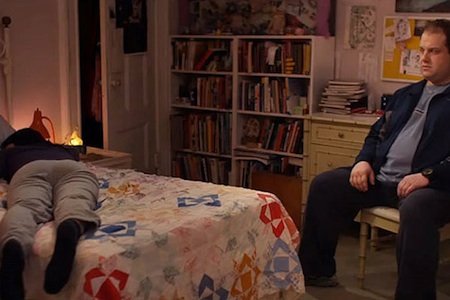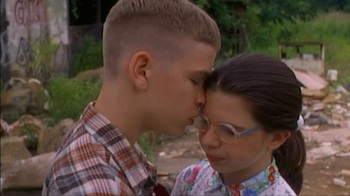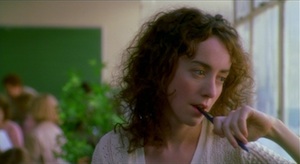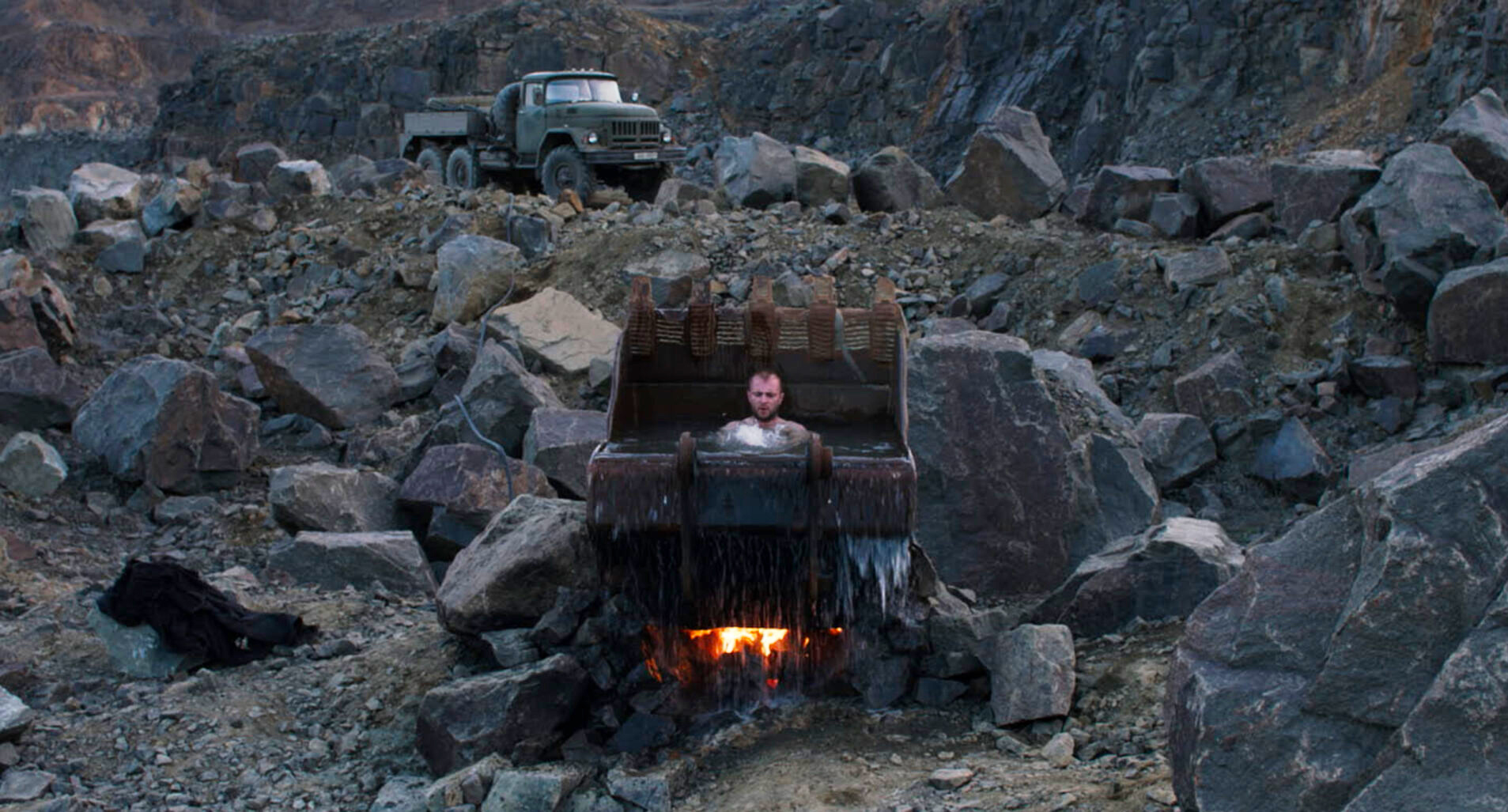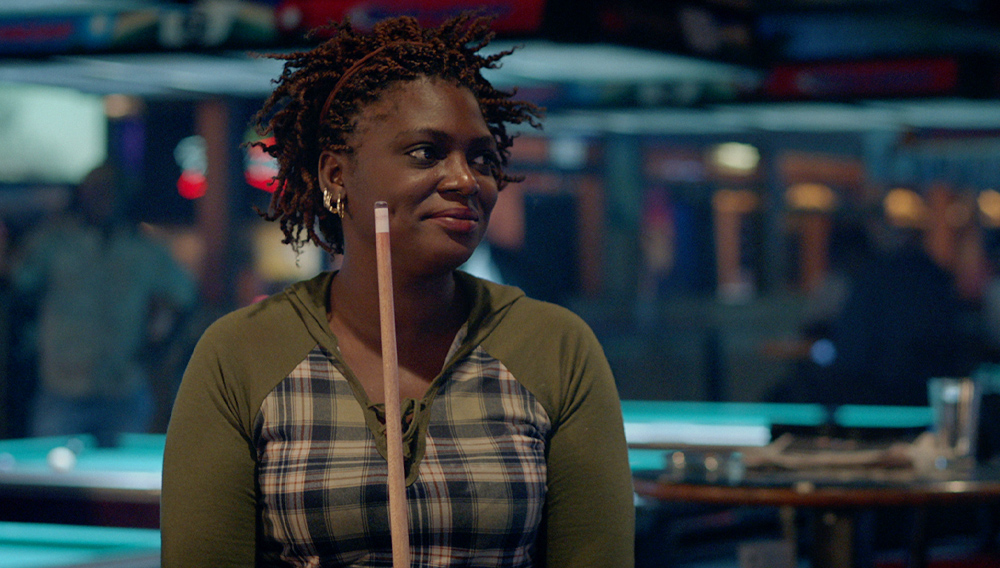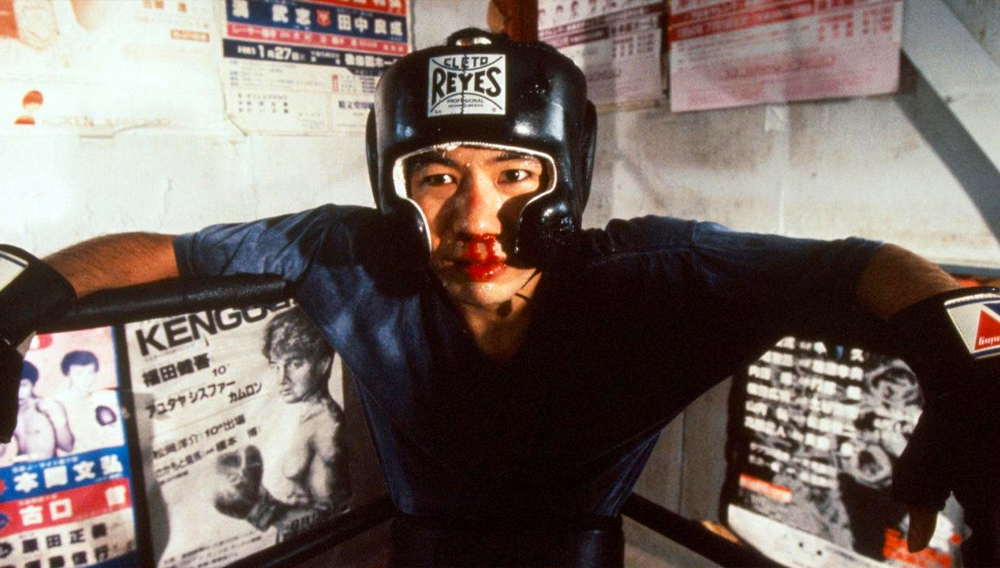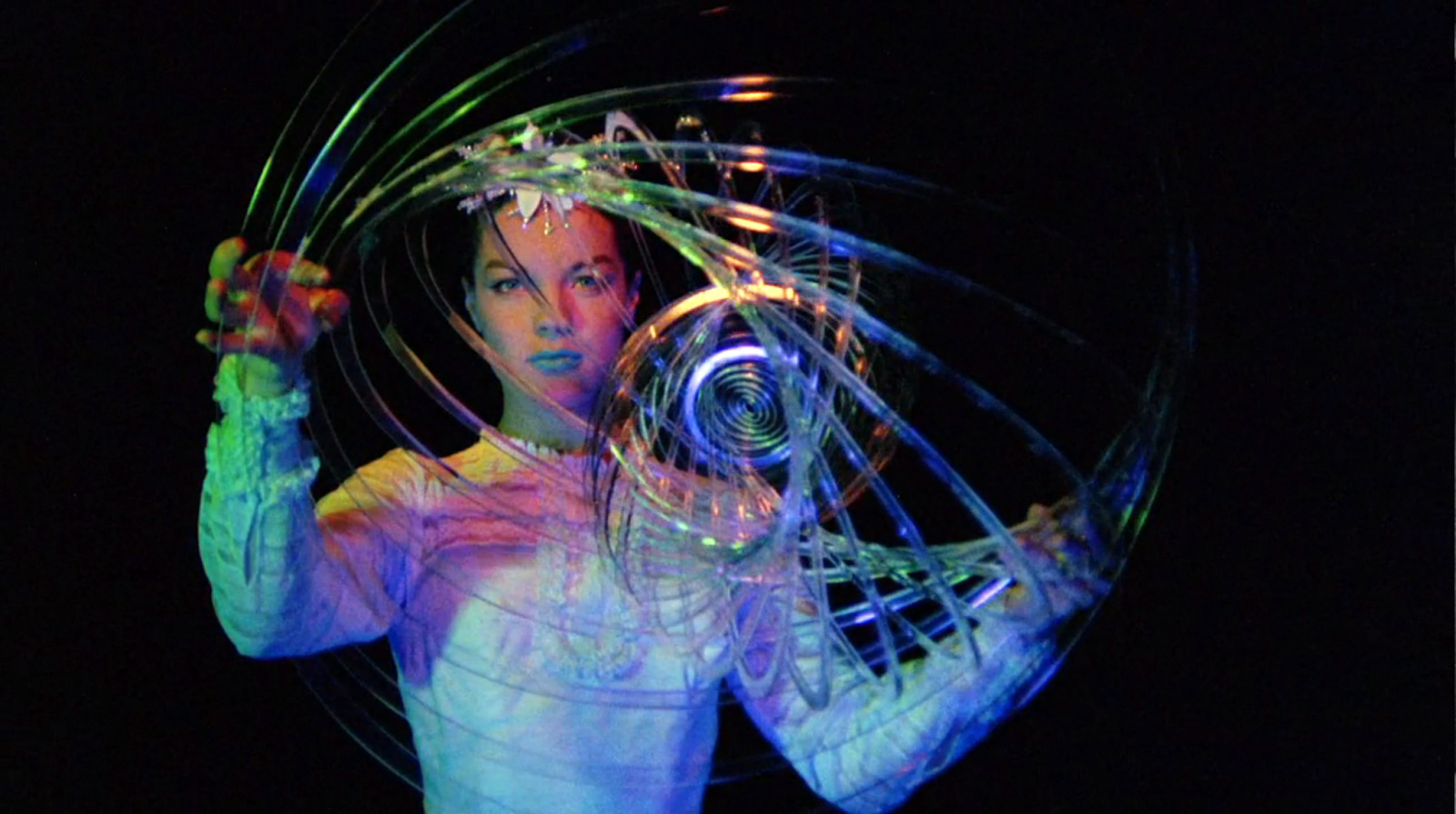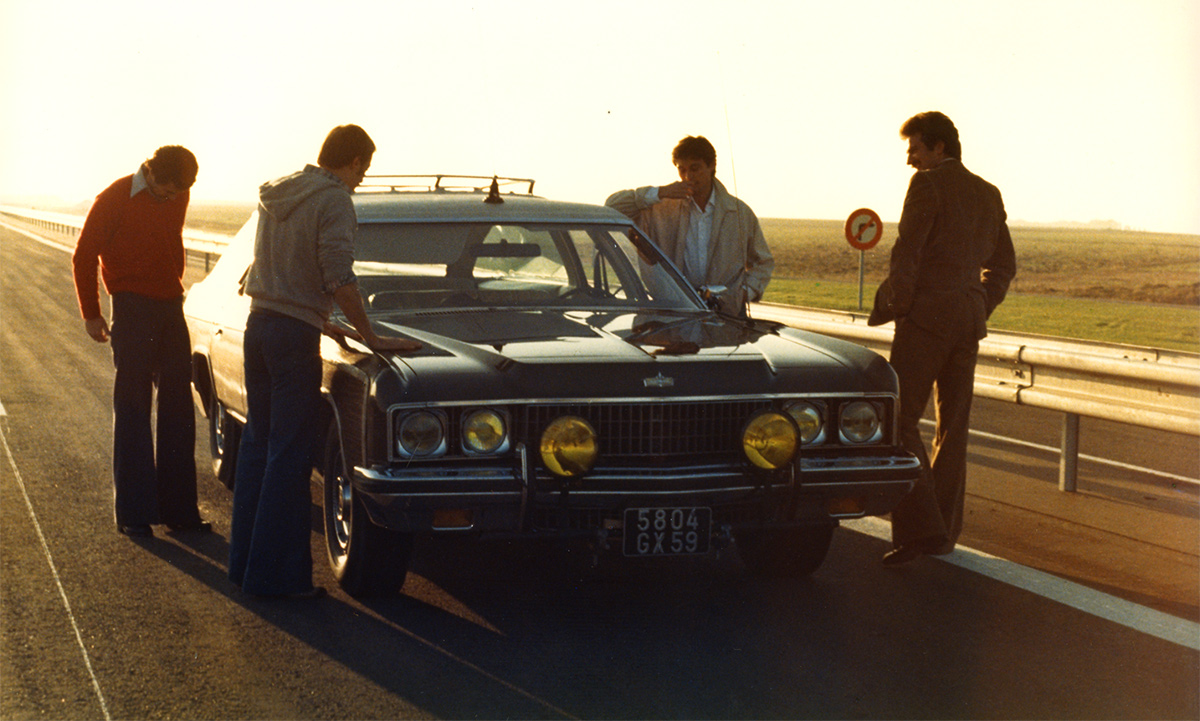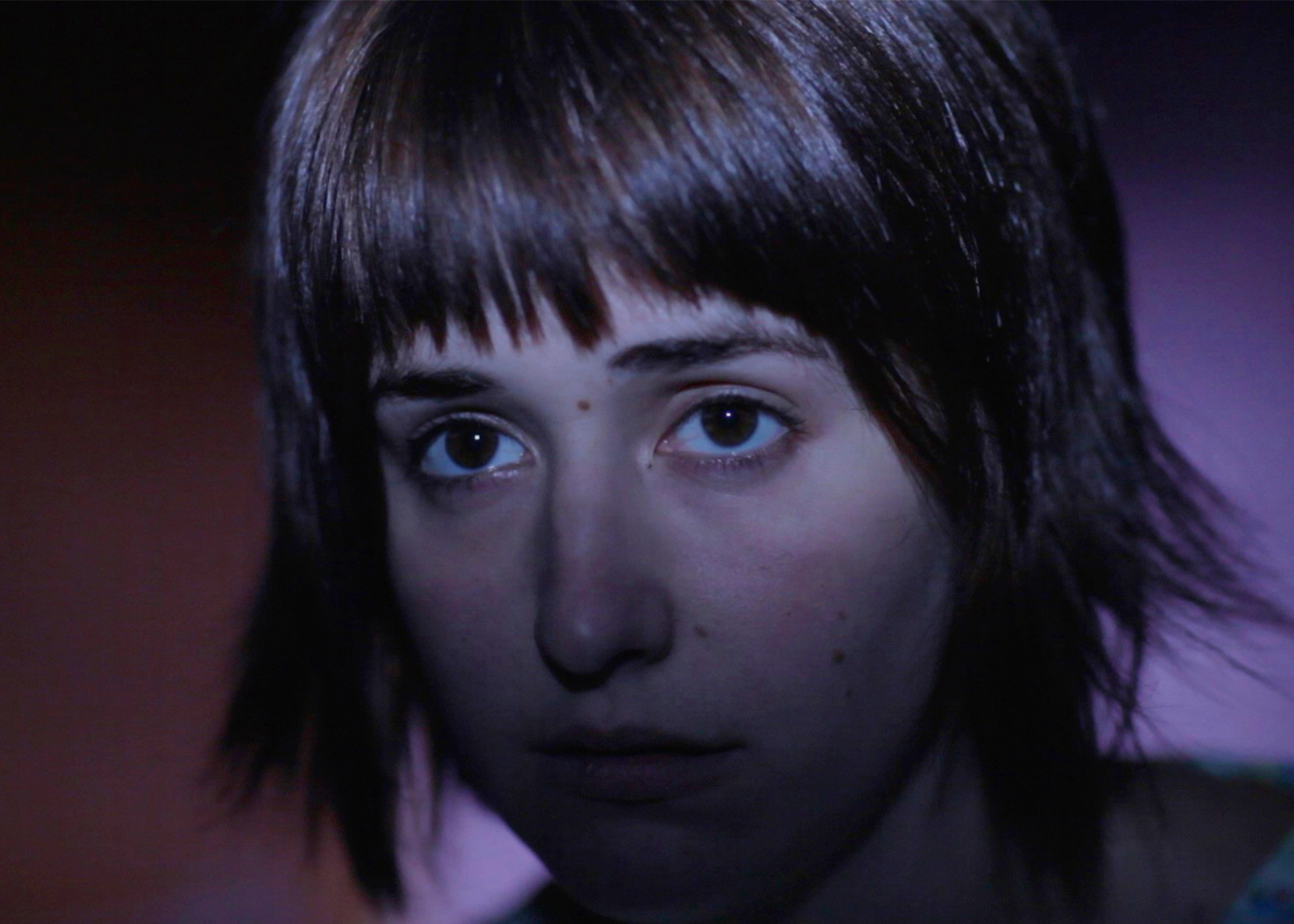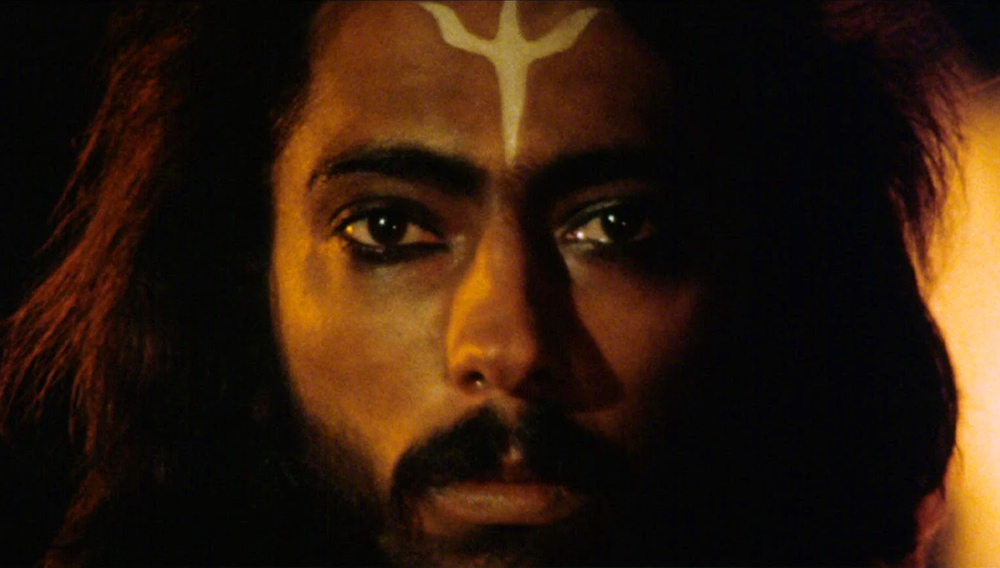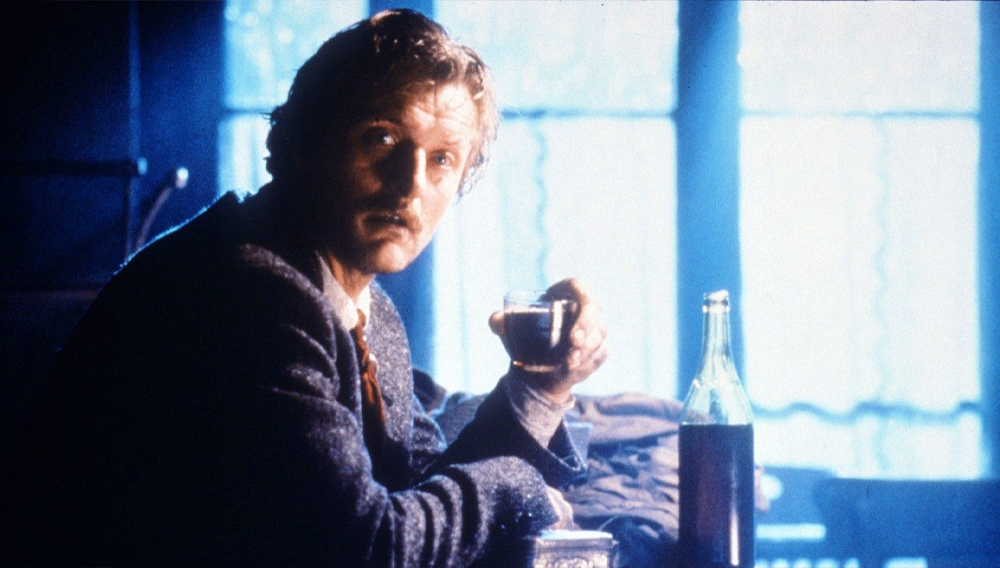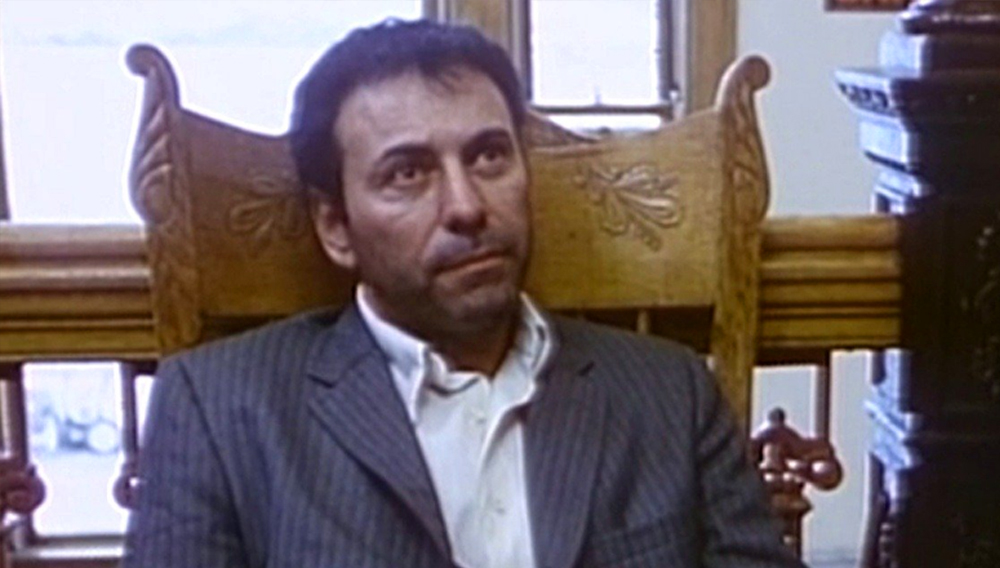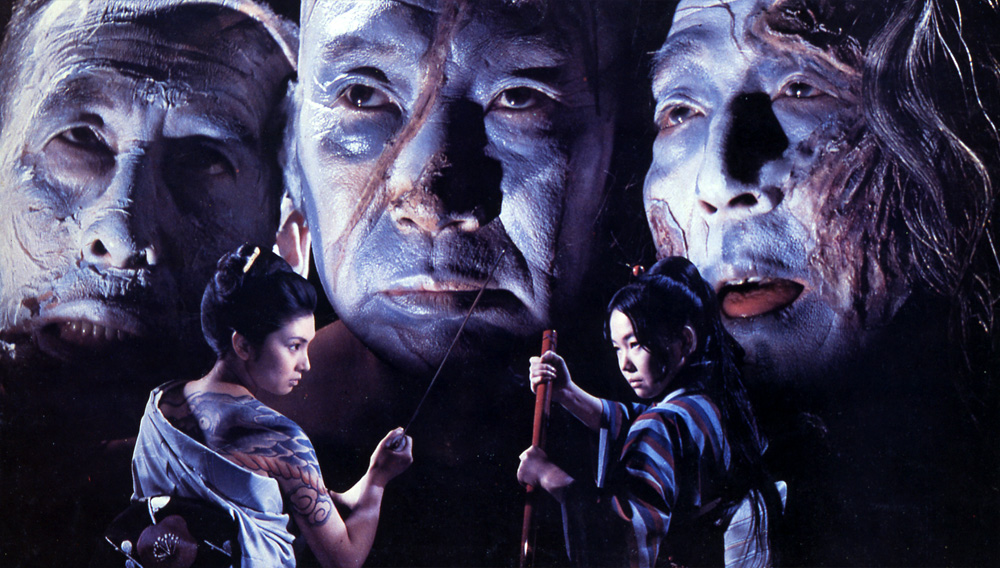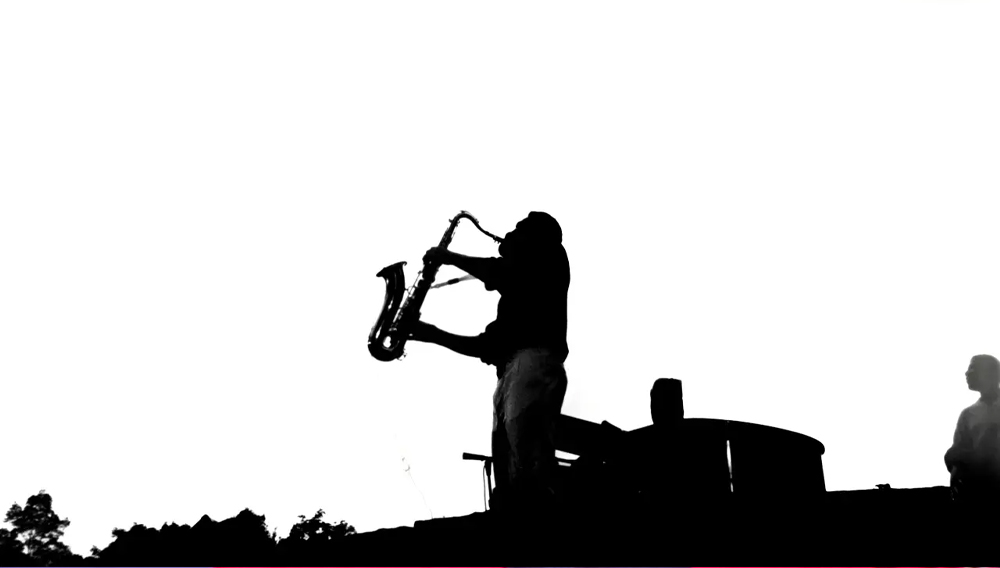Family trauma, toxic relationships, social dependencies, and morality’s gray fringes: Welcome to the world of Todd Solondz. Critic Andrew Sarris once posited that the hands of Todd Solondz must be bloodied from the numerous stabs he’s taken at the so-called American Dream. Dark Horse, at first glance, fits right into the oeuvre as another story of growing up painfully, with a poisoned parent pool and love found in the wrong places. But there’s nothing to fear as leading man Jordan Gelber spices up thirty-nothing Abe Wertheimer’s stillborn life. After screening at several festivals around the globe, Dark Horse opens in limited release on June 8.
Keyframe: I always felt there was a television connection in your films: episodic construction, open endings, spatial design, even casting. Dark Horse, for example, quite openly alludes to sitcom.
Todd Solondz: Because, in a way, it is a tragic version of Seinfeld‘s George Costanza story. We couldn’t afford to license Seinfeld; what we did instead was I got each of the actors that are playing George and his parents: Jason Alexander, Jerry Stiller, Estelle Harris. They recorded lines that I wrote and then we put it together with laugh track. Any American, even Seinfeld aficionados, would think the TV program they are watching is Seinfeld, while it’s [actually] a pure fabrication. I wanted it as a counterpoint to my tragic version of George’s story. I’ve never written a sitcom but certainly watched millions growing up and I’m sure I’m informed by that experience in ways I may not be fully conscious of. To address things that sitcoms do not address, to examine things from another angle is very compelling for me.
Keyframe: You like playing with narrative schemes. Your films have a complicated, multilayered structure, often combining several intersecting parallel plots. But you do not experiment with the image itself much. Why is that?
Solondz: I believe you have to exercise restraint. My scripts feel so charged with great emotional turmoil and humor that I am always very fearful and do not want to do anything too fancy to distract. I like to keep things very simple because there’s already a great deal of tension and drama that exists underneath. I don’t like to overemphasize things that ought to be implicit. If the story is baroque enough, you want to give it a clean setting. That’s part of the logic here. However, that doesn’t mean I don’t spend a good amount of time discussing the look with my cameraman. With Ed [Ed Lachman, with whom Solondz worked on Life During Wartime], for example, we wanted to stress that Alison Janney’s character is starting fresh, [with a] clean slate after letting go of her past. We really liked the idea of fresh, toothpaste-like colors. Such background brings relief to some horrors that take place inside the character’s mind. In the case of Dark Horse, I very often thought about photographer Larry Sultan; I often make references to certain photographers. But really, so much is dictated by your location, budget, amount of shooting days. However, I never though that if I had more money, I’d use more crane shots, or something more complicated. I don’t like it complicated. Maybe if my stories were simpler, it would’ve been different.
Keyframe: When asked about your films’ subjects, you very often reply that they are about ‘love.’ But it seems like that ‘love’ hasn’t always evident for the viewer. Dark Horse however, leaves no room for doubt: It is clearly a love story.
Solondz: There are all kind of love stories and many different loves: It could be man and his dog or a man and his career. An accountant can be in love with those numbers. I need to love my characters and to understand what frustrates them in their love, what they are struggling to attain. I think that the irony is that so many people fail to see me as anything but a nihilist, a misanthrope, as cruel, perverted, sick, and so forth… I think it is a question of certain type of sensibility, a certain open-mindedness that enables the audience to enter this world and see it not as depressing but as something one can be moved by. My movies have a small audience but I feel lucky to have any [viewers].
Keyframe: Sometimes I have a feeling that you do whatever you can to make identifying with the character harder for the viewer. You expose your audience to many unexpected emotions, like enabling compassion for Bill Maplewood (Happiness), who is a pedophile…
Solondz: This character, who in any other way would be a pathetic one, is redeemed by the love and connection he shares with his son. What makes Bill tragic is that he is a great father who loves his son but also has this ‘condition.’ I do not sympathize with him, but I can feel for him, I can understand. It think it makes us more human, the extent to which we can embrace all that is human. Even the word ‘humanistic’ tends to embrace only what’s positive. But to be fully human is to accept all the plus and minus that lives within each of us, the capacity for kindness as well as cruelty we try to suppress. We always fail to behave the way we’d like to, want to—we wish we were more heroic, more giving… we’re never as good as we’d like to be. Nobody wants to identify with a pedophile.
Keyframe: After Welcome to the Dollhouse people would confide in you: ‘Dawn Wiener is me.’ Have you ever heard ‘Bill Maplewood is me?’
Solondz: No. This is something nobody will ever say. To identify with what is demonized, taboo, and stigmatized is a very tricky ambition.
Keyframe: Identifying with Abe is much easier, though.
Solondz: A lot of people can be put off by him: He’s so rude and obnoxious.
Keyframe: —and very unhappy.
Solondz: It’s his vulnerability we’re moved by but his exterior is very abrasive. I am fascinated by the idea of taking someone who appears unlikeable and showing that there’s a heart underneath, a pulse. I always believed that both the persecutor and persecuted reside within each of us. We embrace people not only despite their flaws, but also because of them. We all like to imagine that we have big hearts and are sympathetic. But it is always a big test how generous can we be. To what extent does your sympathy reach: Can we feel for the pedophile? No one chooses to be a sex offender, as people don’t choose their sexual orientation. These are not choices in life. If it were, nobody would choose it, because it means living in a world that hates you. If you’re afflicted with this condition it’s a tragedy. That doesn’t exonerate you from the responsibility of resisting but it is a terrible destiny and a burden.
There are all kind of love stories and many different loves: It could be man and his dog or a man and his career. An accountant can be in love with those numbers. I need to love my characters and to understand what frustrates them in their love, what they are struggling to attain. I think that the irony is that so many people fail to see me as anything but a nihilist, a misanthrope, as cruel, perverted, sick, and so forth. I think it is a question of certain type of sensibility, a certain open-mindedness that enables the audience to enter this world and see it not as depressing but as something one can be moved by.
Keyframe: There is this assumption in psychotherapy that only going back to your childhood and consoling the traumatized child within you can enable you to grow up and try to be happy. It reminds me of Abe, who is an adult…
Solondz: —chronologically…
Keyframe:—but inside he remains this traumatized child.
Solondz: And it’s a child that lives in a home, an environment that perpetuates, supports it. The mother treats him like a child, the father has given up, the secretary in her fantasy wants him to be a man. Growing up is a struggle that ultimately leads to death. I am moved by this theme of the passage of time, the idolization and fetishization of youth, [which] I think it is very western. When you have such a surplus of material and live in a secular world where you don’t have religious convictions, then you create your own gods. To me the bigger the collection, the bigger the emptiness, need, desire. Abe has all those comic books. Who knows if he ever read any of them? The question is: At what point do you own the collection and at what point does the collection own you?
Keyframe: Sometimes the very fact of possessing something positively influences the feeling of self-worth.
Solondz: There is something almost primal in the way it is fetishized. When 9/11 hit, the whole world united. It was a beautiful moment: people wanted to be close to each other, they wanted to help. And what did the mayor of New York say? ‘Go shopping.’ This is an obscenity, but it’s reflective of the larger system. It took a long time for movements like Occupy Wall Street to rise, but I do applaud this attempt to change the system. People want a sense of fairness, of justice, and there’s too much corruption and abuse for then to have faith in the system the way it exists right now.
Growing up is a struggle that ultimately leads to death. I am moved by this theme of the passage of time, the idolization and fetishization of youth, [which] I think it is very western. When you have such a surplus of material and live in a secular world where you don’t have religious convictions, then you create your own gods. To me the bigger the collection, the bigger the emptiness, need, desire.
Keyframe: When grew up in the United States in the era following the Vietnam War. How did you picture your future?
Solondz: As a little boy I was so enamored with science, the advances they made, the discoveries, the cure… When I look back at is as an adult, I am shocked. I thought religion would be gone, that people would be so smart that they would let go of it. But I was wrong.
Keyframe: Religion is a safety blanket, a cocoon they can hide in.
Solondz: I am Jewish, but a devout atheist. I believe in here and now. This is miracle enough that I’m meeting you and having this discussion. This is enough right here. Some say that religion causes all wars, but I think it’s something else. Fascism and totalitarianism were not about religion. The impulse for conflict is just in human nature; it’s always simmering. People try to create systems to minimize conflict but it’s easier said that done.
Keyframe: Conflict—especially with MPAA—seems to be a recurring theme in your career.
Solondz: My last few movies were not even submitted to the MPAA. Dark Horse was and got a good rating. The way I look at it is that Europeans miss out: It’s only in United states that you can see this huge red box covering the sex scene in Storytelling. It is important for an audience to know what they are not allowed to see. However I think in some cases, constraint might be good. Just look at the films they make in Iran, under an oppressive regime, or in Romania, where they are really struggling, yet still come up with some startling work. Just look at their cinema! It’s a mystery why certain places and cultures in certain times suddenly emerge with remarkable work. Restraint can inspire some incredible work.
Keyframe: MPAA is supposedly representing ‘the American parent.’ What is this creation, if you—a parent yourself—are not one?
Solondz: I think it’s good to advise and warn parents so they are aware. But parents get panicky way too easily and then it’s transmitted to the children. Children have natural censors, certainly when it comes to sex on the screen. When I was a pre-pubescent boy, when sex scenes started I would just go and get more candy, I’d lose my interest. I was bored. That meant nothing except that it was the slow part. Violence would scare me more—it could have been just a punch. I think it should be left for the parents to decide what their children can watch, not to some kind of a committee. Parents are very often worried about what the kids watch on TV, while their children’s biggest nightmare is their life with their parents…
Keyframe: Why do you think MPAA is so much more sensitive about sex than violence? For example, Gunner Palace, a documentary about soldiers in Iraq, residing in one of Saddam Hussein’s residences, got an NC-17 not for explicit images, but for… explicit language.
Solondz: You can’t help but suspect there is a political component there, because the film is critical of the war. Even with Welcome to the Dollhouse I had [a panel of] mothers from Texas. At first they didn’t approve of the trailer, because they didn’t want the girl decapitating a Barbie doll and using the word ‘intercourse.’ The thing is, I think, ‘intercourse’ has different meaning—it’s not always sexual. She, of course, was inquiring about sex and so it was forbidden. If you say ‘fuck you,’ they will accept it. But if you say, ‘I want to fuck you,’ then it’s a problem.
Keyframe: Do you feel like your voice was heard and now has it’s own place in contemporary cinema? Do you feel like there are authors that are continuing your work?
Solondz: I liked Dogtooth and am curious to see where this Greek filmmaker goes. The Death of Mr. Lazarescu by Cristi Puiu really amazed me as well… When it comes to influences and impacts, we all take from the people that precede us and find new ways of making the stories of our times fresh. There might be people taking something from me. It’s always dangerous though; when I think about Martin Scorsese and Mean Streets, a wonderful little movie and yet it inspired so many terrible films. It takes time to find your voice as an artist. Sometimes it happens when you’re young, but not always. For example Buñuel’s best work happened when he was in his 50s and 60s. With me it happened when I was working on Welcome to the Dollhouse. I suddenly learned how to breathe my way. When you get older you have more ideas than before, just less time. Also financing is much more difficult than it’s ever been. I don’t end my career; God ends it.
I am Jewish, but a devout atheist. I believe in here and now. This is miracle enough that I’m meeting you and having this discussion. This is enough right here. Some say that religion causes all wars, but I think it’s something else. Fascism and totalitarianism were not about religion. The impulse for conflict is just in human nature; it’s always simmering. People try to create systems to minimize conflict but it’s easier said that done.
Keyframe: Music plays a pivotal role in your films from the very beginning.
Solondz: I love music, and if I had talent I would be a musician. There are people who are more talented than me, who I love working with. In Dark Horse, the musical choices are adolescent, simple pop, integral, and related to the character, who is trying to hold on to his lost youth. I had a chance to collaborate with Devendra Banhart and with Beck when recording the score for Life During Wartime and it was beautiful. Belle and Sebastian did great things for me also [for Palindromes]. And those Jesus songs are wonderful! I describe what I want and then find right people to execute it. I’m very blessed in this way.
Keyframe: Do you sing for your children?
Solondz: No. Not yet. I play the piano for them. But they’re more interested in noise than music right now.
Keyframe: What do you think of the fact that critics sometimes refer to works of other filmmakers as ‘Solondzian.’
Solondz: I would suspect that would imply something dark, a little scarily humorous, perhaps with a sexual component.
Keyframe: And if you were to determine what it should mean?
Solondz: I would like it to mean friendly! A nice person, a positive thing. I remember when, years ago, I would walk down the street and someone—a stranger—would stop me and say: ‘Why so serious? Can’t you smile?’ So I continue walking and start smiling. Then someone stops me and says, ‘What are you smiling at?!?.’ People write all kinds of things, especially now, in the age of Internet, but I can’t really think about that. You just have to live your own life. I have no vanity, but I’m glad they don’t call me terrible all the time. George Lucas said that there are the creators and the destroyers; I prefer to be associated with the creators.

